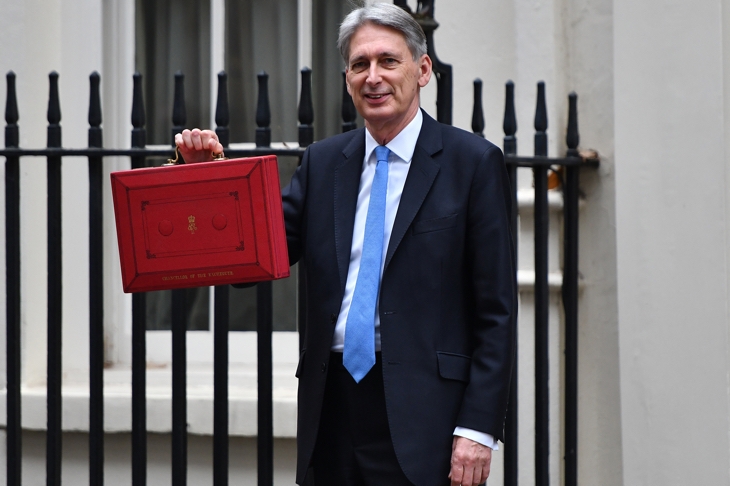Philip Hammond began his first Budget, in March, by playing down its importance — for his big ideas on fiscal policy, he suggested we would have to wait until the autumn. It was a wait which was very nearly extended to eternity as he narrowly avoided losing his job in a post–election reshuffle. We found out this week that it was a bluff: he doesn’t have many big ideas, just a selection of small ones. Which, under the circumstances, is something of a relief.
The Chancellor is getting better at telling Britain’s story, boasting about record employment and how the best-paid 1 per cent pay 27 per cent of all income tax. He didn’t say why (that tax rates for the best-paid were reduced), nor did he double down on more tax cuts that could have stimulated growth. The gloomy growth forecasts underline the case for radical pro-growth Conservative policies, but we settled for some small ones. There was tax relief for entrepreneurs, business rates indexed to the lower CPI index ahead of schedule. All welcome.
The centrepiece of his budget was a target to build 300,000 new homes a year by the mid-2020s. But this is hard to take seriously without a thorough rethink of the planning system and building regulations (which he promised to ‘focus on’), and in any case, housing is a hostage to economic conditions. Ten years ago, Gordon Brown in his last Budget similarly set himself a house–building target — albeit of only 200,000 homes a year between then and 2020 — only to see the credit crunch and subsequent banking collapse render it a pipe dream.
We heard a lot about driverless cars on British roads — but that is in the hands of the technologists, not Philip Hammond. There are many problems to be solved before such vehicles can safely be allowed on the roads, and Hammond has no idea how, or at what pace, they can be solved. In latching himself to an exciting-sounding technology he is taking a leaf out of the rulebook of Harold Wilson, who liked to talk of the ‘white heat of technology’ as a means of distinguishing himself from Conservatives who gave the impression that they belonged on the grouse moors.
The reforms to Universal Credit were welcome, especially cutting the wait for new claimants. The Tories often seem to fall into a trap of thinking that young people are all mobile graduates on the lookout for cheaper train fares to London. In fact, a great many are low-paid workers who need Universal Credit to work as it was intended — encouraging people to leave welfare and take up employment. There is still much repair work to do, given how much the in-work allowance was cut back under George Osborne.
In this Budget there was an opportunity to take the fight to Jeremy Corbyn by laying down clear battle lines over taxation and spending, to present the young voters who deserted the Conservatives in June with a clear choice: do you want the government to spend your money on your behalf — or would you like to keep more of it yourself, so that you can make your own spending decisions?
That battle of ideas will have to come at some point, but it has become clear that the Conservatives do not yet have the stomach for it.






Comments